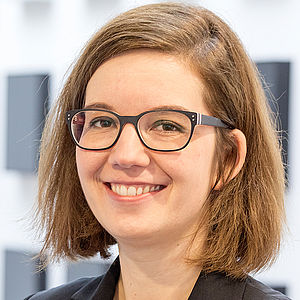The Science Media Center (SMC) asked Professor Hannah Schmid-Petri, holder of the Chair of Science Communication at the University of Passau, for an assessment of the role of digital media in the current conflict in the USA. The commentary that follows – together with those of other experts – first appeared on the website of the Science Media Center. The SMC is an independent, public-welfare-oriented scientific editorial office which assists journalists in reporting on topics with a scientific connection.
The developments which came to such a sad climax in the attack on the Capitol have already been in the offing for a long time. In my opinion, the reasons for them lie in more profound societal changes such as an increasing influence of populist protagonists in the business of politics, an increasing polarisation of American society associated with that, and a president in office who avoids objective discussions, spreads disinformation and insults political opponents. The numerous communication processes that take place in social media contribute in various different ways to the dynamism of such radicalisation – but only in people who are already liable to be influenced by populist slogan-wielding. The great majority of citizens use social media for a democratic and constructive discourse.
Professor Hannah Schmid-Petri
How are digitalisation issues publicly discussed and what consequences does that have for political processes?
How are digitalisation issues publicly discussed and what consequences does that have for political processes?
Professor Hannah Schmid-Petri is the holder of the Chair of Science Communication at the University of Passau and leads the Fraunhofer 'Science Communication' research group, which is based at the Fraunhofer Cluster of Excellence 'Integrated Energy Systems' CINES. She is also one of the principal investigators of the DFG Research Training Group 2720. She analyses public discussions on political issues such as digitalisation and climate change.
Digital media enable Trump to communicate directly with his followers
Social media enable political protagonists to communicate directly with their followers. Trump has put them to very successful use for his ends. He thus manages to reach his supporters directly with his messages and mobilise them. This effect is intensified even more when the algorithmic curating of the social networks ensures that his posts or tweets gain a great amount of attention, and/or journalistic media pick up on them and make them accessible to an even wider public. This way he also evades the quality assurance processes normally required in journalistic work, which would identify false reports or disinformation campaigns as such and categorise them appropriately.
Digital media make it easier to network and coordinate
Political factions which either have no institutionalised access to political power – such as social movements – or are out on the fringe of the political spectrum, are often characterised by being thinly spread over a wide area. Digital media now make it possible for them to get together with those of like mind and exchange ideas and opinions with comparative ease on line. This applies both in a positive sense to political factions with democratic aims – as for example in the context of the Arab Spring – and to protagonists who have politically extremist views and abuse these networking amenities for their own ends. Moreover, protests of all kinds can be organised and coordinated much more simply via social media.
Digital media contribute to a common sense of identity
This exchange of ideas and opinions and networking in digital communities, forums or groups contributes to the formation of a sense of community, the establishment of common aims and thus the formation of a shared group identity. The fact that, when an operation has been carried out, images and film footage of the common protest can be shared in these groups helps to cultivate that identity, strengthen it further and communicate it to the world outside. This probably applies in particular to (political) outsiders, who "finally" feel understood and among kindred spirits when they are in such a group.
With whom does the responsibility lie?
Blocking Trump's account, however, will not solve the fundamental, truly causal problem – which is that we are confronted here with an influential politician who makes no bones about disseminating fake news and openly supporting violent demonstrators.
Professor Hannah Schmid-Petri, University of Passau
Because digital media and, above all, social networks make it possible to communicate millions of times over, the public discourse is becoming more heterogeneous and more diverse – for better or worse. The consequence is that digital media tax our understanding of freedom of speech, because they also enable an enormous number of communication processes which go against what we understand by a constructive societal dialogue. But if we want to uphold the principle of freedom of speech, we must not allow ourselves to be hoodwinked. It goes without saying that each expression of opinion has its legal limits, and of course the publication of content that is in breach of those limits should be punished swiftly and effectively. But blocking Trump's account will not solve the fundamental, truly causal problem – which is that we are confronted here with an influential politician who makes no bones about disseminating fake news and openly supporting violent demonstrators.
All in all, it turns out, social media are not the root of political evil, but they are very-high-performance platforms for communication and group formation which people use both for welcome and for harmful purposes. The utterances people make in social media should be protected by the freedom of speech just as much as table talk and speeches made in public. But the same legal limits of freedom of speech should apply too.




![[Translate to English:] [Translate to English:]](https://www.digital.uni-passau.de/fileadmin/_processed_/3/5/csm_Nour_Shaban_fc4be1f6b2.png)
